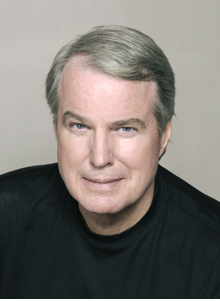

WHAT'S REALLY IMPORTANT
Starting at an early age, all of us are subjected to continual and enormous pressure to conform, accept what we are told and go with the flow. You are told, “Don’t argue, just do it.” If so-and-so says such-and-such, it must be right. When the vast majority of people are convinced black is white, then it must be so. Wrong.
To accomplish anything of consequence in any field, the reality is you have got to become an independent thinker. This means having the courage and fortitude to challenge the consensus, question long-held assumptions, ignore the current fashions of thought and counter conventional thinking. When an issue is important, think it through yourself without relying on what others believe or tell you is true.
Resist peer pressure to conform to the shared views of your friends and associates. Decide for yourself what positions and actions are acceptable. March to your own drummer when your instincts tell you to do so.
Treat all types of media reporting with a certain amount of skepticism. Keep in mind that the first priority of television, newspapers and magazines is to maximize the number of viewers or readers. This has a huge influence on what they cover, how they do it and what they say. The second priority of the media is to get “the news” or story out there ahead of competitors. This makes it difficult (but not impossible) to take the time to do a balanced, in-depth, careful analysis of what really happened in reporting the news on a daily basis.
You may find this out when you are personally involved in a news story or interview with the media. You will discover that a minimum of one-third of “the facts” of what you believe is true may be ignored or misrepresented in any ensuing media coverage. You will then say to yourself, “If this is what happens to something that I have first-hand knowledge about, what is the likelihood of all the other reported news being accurate?” To be fair, however, your impressions of any event are as subjective as those of any reporter.
Whenever you read or watch a news story, ask yourself, “What is really going on here? What could be the other side to this story? Is something important being left out?” Resist jumping to conclusions. In any type of conflict, for example, the opposing sides have a strong motivation to engage in disinformation or the planting of false information, stories and photos to make the other side look as bad as possible. As a line in the famous Gilbert and Sullivan opera H.M.S. Pinafore goes, “Things are seldom what they seem.”
Recognize that all so-called “experts” have their limitations. Many such experts like to hear themselves talk and attempt to extend their expertise into areas where they really do not know that much. Apply the same skepticism to experts as you do to the media. Refrain from assuming that people automatically know what they are talking about, regardless of their fame, position or wealth. Challenge, probe and question the statements, predictions and assumptions of experts.
In addition, exercise some “due diligence” regarding the information you obtain through the Internet. There is a strong tendency for individuals to exaggerate their own ability to sort out the accurate information from the oceans of misleading and false information on the Internet. People often judge the credibility of a website mainly by its appearance when what is much more important is to evaluate who is sponsoring the website and for what reason.
Commentators have pointed out that the Internet is entering a new era, Web 2.0, driven by participatory sites such as www.Facebook.com, www.YouTube.com and www.Wikipedia.com based on interactive information sharing and social-networking. So much of Web 2.0 consists of anonymous user-generated content that it is difficult to differentiate facts and informed opinions from speculations and misinformation. In his book, The Cult of the Amateur, Silicon Valley entrepreneur Andrew Keen cautions that “what the Web 2.0 revolution is really delivering is superficial observations of the world around us rather than deep analysis, shrill opinion rather than considered judgment.”
Regard Google as just the starting point for knowing “what’s out there”. Use e-mail to connect with user groups. Seek out alternative sources of information, including that available in libraries. If the information is at all critical to you, do not be lazy and complacent in verifying its credibility. Develop your own information literacy skills for double and triple-checking anything of importance you need to know about.
Being an independent thinker requires you to make the effort to try to see things as they are, not as others want you to see them. The truth can be entirely different from what the consensus or conventional thinking believes. Since the beginning of mankind, the key to wisdom, invention and progress has depended on someone asking, “Why?” or “Why not?” That someone should be you.
CONTENTS
- The Right Mind-Set
- Follow Your Passion
- Healthy Relationships
Relationship Boosters
Relationship Blockers
Personal Communications - Friends
Lasting Friendships - Couples
Wanting to be a Couple
Dating
Online Dating
Dead-End Relationships - Marriage
Achieving Happy Marriages
Weddings - Family
Children
Teenagers
- Ethics
- “Success”
- Your Mental and Physical Wellness Nutrition
- Keep Financially Fit
- Faith
- Dare to Be an Independent Thinker
- Become an Interested Individual
Internet News
Read Books
Education Smarts - Holidays
- Giving Back
Overweight
Sleep
Doctor Recommendations
Medical and Health Info
Reading and Texting While Walking
